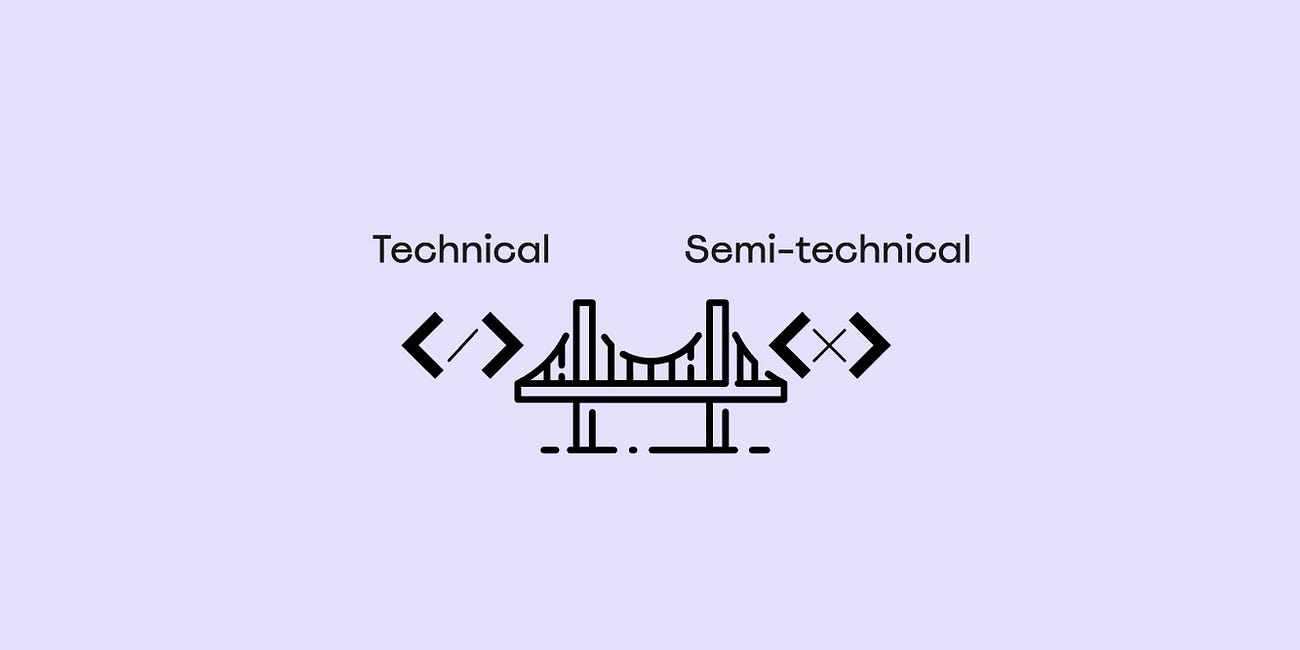The data landscape has evolved at a tremendous pace since the onset of the pandemic and the unprecedented level of VC-fueled innovation has given rise to a ridiculous number of new data tools.
While this surge has been a boon for data practitioners whose workflows have been greatly improved, it is also resulting in a widening gap between data people and non-data people which I like to refer to as the modern data divide.
If left unaddressed, this problem will continue to exacerbate and make it even harder for organizations to make data democratization a reality.
In this context, by non-data people, I’m referring to data consumers who work in data-adjacent roles and belong to go-to-market (GTM) teams. These are folks who rely on accurate customer data being made available in the tools they use to derive insights and act upon those insights.
On the other hand, anyone who works in a data role, as an individual or as part of a team, is essentially a data person. Sometimes software engineers are tasked with data engineering responsibilities, in which case, they can also be referred to as data people.
By investing in shiny new tools and technologies, organizations are avoiding the arduous route of taking small steps to empower individuals to do more with data every day.
This approach is, in fact, contributing to the gap, and bridging that gap is a hard problem with no one-size-fits-all solution. That said, I’d like to share some ideas that I believe can help.
What organizations can do to bridge the gap
It’s easier said than done and can take a while to show results, but I’d like to propose two concrete steps in this direction.
Evangelism
Organizations should consider hiring a bridge team or even just one person whose job is to understand and communicate the needs and constraints of data and GTM teams to each other.
Think of this as bi-directional evangelism where GTM and data both have a better understanding of each other’s priorities and work towards keeping those priorities aligned.
In the long run, the bridge teams should help GTM teams learn everything they wish to learn about the organization’s data infrastructure, and at the same time, help data teams understand the impact of their work on business growth.
Companies that already have an ops function can think of the bridge team as an extension of their ops teams (I covered this in the MDS has a hiring problem).
Enablement
Evangelism without enablement is no good when pushing for a new way of work.
Companies must invest in a data knowledge repository containing answers to common questions about the company’s data infrastructure, and encourage GTM teams to keep asking questions. In fact, a Q&A repo like this can help data people too, especially when they’re getting onboarded.
I’d like to clarify that I’m not referring to a data cataloging or discovery tool — it certainly has benefits but telling people what data is available and in what shape is just not enough.
There needs to be a system in place that allows anyone in the organization to confidently ask data questions — how data is collected, where it is stored, how it’s moved around, what tools are used, why certain data is not collected, and what is the process to change that.
This is where the knowledge repo can make a difference and can potentially improve collaboration between data and GTM teams. In fact, I also believe that investing in a bridge team is a significant step toward turning this idea into reality.
What individuals can do to bridge the gap
Organizations doing their part is not enough and individuals too have a role to play in bridging the gap between data people and non-data people.
Gaining a sound understanding of the organization’s data infrastructure and the purpose and benefits of the available data tools can go a long way for GTM teams to do more with data in their day-to-day. In fact, knowing basic SQL, while not at all necessary, can help people ask better questions and get faster answers.
Also, seeking access to available data assets is one of the best ways to figure out how to utilize data that’s readily available to improve the outcome of one’s everyday efforts.
Besides tapping into the knowledge of internal teams, GTM folks can also find answers to broader questions in external communities — expert practitioners usually enjoy answering people’s questions and don’t consider any question to be stupid.
It’s time to rethink how we address less technical folks
Everybody who works in tech is technical at some level — it’s just naive to refer to them as non-technical just because they don’t write code.
Similarly, a growing number of people don’t build data pipelines or write SQL queries but work with data in their day-to-day to derive insights and drive action.
I hope that going forward, it makes no sense to refer to them as “non-data people”.
The original version of this article was published on the Amplitude blog.
Continue Reading
The Modern Data Stack Has A Hiring Problem
Software engineering is a mature practice with a clear set of roles one needs to hire for to build a piece of software. Setting up a data practice is a lot less straightforward and unless you have a strong understanding of all the moving parts of a data stack, you can spend a ridiculous amount of time and effort trying to figure out the skills you’re lo…





